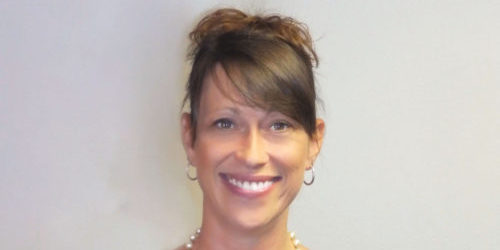
With the inauguration of Donald Trump and the continuing fallout from the Brexit vote, it’s fair to assume that we are heading for uncharted waters both nationally and globally, writes Simon Fox of Carpenter Box Wealth Management LLP (CBWM).
If there’s one thing we know about uncertainty, it’s that it makes businesses and financial markets nervous. For investors, it makes life much more complicated because the all-important balance between risk and return is much harder to call.
On the face of it, 2017 is likely to be a year where low interest rates and volatile stock markets remain the order of the day, but only a fool would pretend that they have 2020 forward vision in any economic climate, let alone the current one.
In terms of interest rates for instance, there are other competing issues to be considered such as OPECs recent decision to cut oil production (which will see the cost of oil rise). Add this to the increasing cost of living consequent on the fall in value of the pound and we can predict that there will certainly be inflationary pressures building up. The usual tool to limit inflation is to increase interest rates, which the Bank of England may not want to do because it will damage confidence in what is already a fragile system. You can see the problem…
Bringing this back home to the personal means that investors are likely to find it more difficult to devise a strategy to build long-term wealth, at least in the short term!
Whatever the vehicle, be it a pension, an ISA (tax-friendly Individual Savings Account) or the various other types of savings account, investors are going to have to brace themselves against market falls impacting on their investments, whilst looking to take advantage of any upsides that may present themselves.
Pensions
In our view, pension savings should remain high on the list of possibilities. This is an area where getting good advice is key. In our case, we work closely with the tax advisers from our sister accountancy practice to make sure that the advice given takes into account the individual’s tax position, as well as the return on the pension investment itself. The favourable tax advantage that pensions can offer may not be around forever, so whilst we’d never advise making a hasty decision,
time and the tax-man may not be as generous in the future. Indeed, an overhaul of this generous tax incentive was looked at earlier this year by the government with a view to reducing the £20billion annual net cost to the Treasury. Luckily for the investor, the overhaul was shelved after a backlash from so called ‘middle England’.
Easy wins
There are some easy wins such as making sure to use all the available tax allowances, which means taking advantage of the annual ISA allowance which stands at £15,240 in the current tax year. ISAs can be used to save in cash or invest in shares and funds. There is also a specific ISA allowance for children of £4,080.
Of course we mustn’t forget that basic rate taxpayers can also earn up to £1,000 of deposit interest a year tax-free – the limit for higher rate taxpayers is £500 with the new personal savings allowance.
Your personal invitation to our Investment & Tax Seminar
Pensions and investment experts from CBWM, together with Chartered Tax Advisers from the Tax Services Group at Carpenter Box, will be holding a seminar in the late afternoon of 7th February at South Lodge Hotel near Horsham to look at some of these issues. The seminar is aimed at helping individuals to navigate their way through the plethora of opportunities and confusion around pensions and investments, whilst giving tips to help make sure that any investments made are as tax efficient as possible.
They will be talking about the best way to consider asset allocation by looking at the balance between risk and return. They will also be considering the advantages and disadvantages of pension self-investment, whether that be through a SIPP (Self-Invested Personal Pension) or a SSAS (Small Self-Administered Scheme) as well as looking at other tax efficient investment models.
Anyone wanting to sit down with an adviser to look at their own personal situation will be able to arrange a further meeting following the seminar.
You can sign up for the event by visiting www.cbwm.co.uk or by contacting CBWM on 01903 534587
Autumn Statement 2016 – important changes to the VAT Flat Rate Scheme. Be in the know!
There were some interesting and slightly obscure elements to the Autumn Statement, one of which concerned the VAT flat rate scheme which is a concession by HMRC to help smaller businesses simplify their obligations around accounting for VAT.
The Chancellor announced that the scheme is to be modified to counter what he views as abuse of the concession. This will certainly impact a number of businesses in the region and potentially reduce the benefits of using the flat rate scheme from some businesses.
Normally a business would deduct the VAT charged on what it buys (the inputs) from the VAT charged on what it sells (the outputs). Under the Flat Rate Scheme (FRS), that two stage process is simplified to one step. When the scheme was set up, it was done on the assumption that HMRC would collect roughly the same amount of VAT from the FRS as ordinarily, but the concern is that this hasn’t been the case because there is scope for abuse.
From 1 April 2017 therefore, FRS businesses must determine whether they meet the definition of what is termed a limited cost trader (“LCR”) and, if they do, then a new rate of 16.5% will need to be used. The new approach will disproportionately affect firms providing services who currently use the VAT Flat Rate Scheme but spend very little on goods, such as raw materials.
An LCR is defined as one whose VAT inclusive expenditure on goods is less than 2% of their VAT inclusive turnover, or where it is over 2%, the value is less than £1,000. In addition to this change there are also a number of excluded items to take into account as well as some so-called anti-forestalling measures to help to counter further abuse.
If you think you may be affected and would like to discuss your options in more detail then please contact our VAT expert, Dan Hobbs on 01903 234094.






